Azam and his college friends encountered Khushwant Singh’s Train to Pakistan in 1968 when they discussed books and geopolitics. In the first part of the three-part series, he says he ran away with the book to read it – exclusively for Different Truths.
Charles W Eliot served the most extended term as president of Harvard University from 1869 to 1909 and is supposed to have said: “Books are the quietest and most constant of friends; they are the most accessible and wisest of counsellors, and the most patient of teachers.” And some of them may be as elusive as perfume, yet doggedness will nab them!
Irrigated by vintage scotch, the towering intellect, which ranged unbridled from fiction to non-fiction, poetry to prose, history to politics, authored forty-three books, countless poems and short stories, unimpededly crossed the Indo-Pakistan border to impact our young lives in Lahore at a time when Tariq Ali was busy assisting Danny Cohn-Bendit, weaponising the paving stones of Paris’ Latin Quarter to confront French riot police.
In Pakistan, the Ayub Khan government was teetering in the face of street unrest organised by a united opposition with no plan for the after-party, and the London Club had yet to fully deploy its Marxist umbrella under which to foment the Baluchistan insurgency. Their members, which included my classmate Asad Rehman, son of the Chief Justice of Pakistan’s supreme court, and his friends Najam Sethi and Ahmed Rashid, now celebrity journalists, might have been studying Che Guevara’s failure, which they hoped to someday, transform into success in Pakistan. Whether or not their revolutionary agenda made space for Sirdar Khushwant Singh is unknown. However, in 1968, his Train to Pakistan triumphantly landed on our tea table in the Lucas Centre café of Forman Christian (FC) College, Lahore.
Some of my contemporaries at FC and GC — Government College — and the dozen or so other university colleges were trotting in the streets with damp handkerchiefs around their faces to thwart tear gas, hoping to topple the Ayub government and replace it with a brave new world managed by another set of seasoned liars and shake-down artists.
My college friends and I were already cynics, unwilling to risk teargas and baton charges to inflate the offshore accounts of the beleaguered Field Marshal’s successors of doubtful virtue. So, between attending a few classes and bunking some, we spent our time loafing, comparing the merits of Old Spice, King’s Men and Brut after-shave, visiting our tailors, chasing girls, boxing, fighting, debating, and passionately discussing books and geopolitics, often at FC’s classy little Lucas Centre. Its hollow square housed facilities for bodybuilding, basketball, boxing, Asghar Pehelwan’s fruit shop, Naseer bhai’s barbershop and the faculty and students’ cafés — separate, mind you — officers and troops didn’t mix! Bay windows looked out on acres of greenery, impeccably maintained by an army of gardeners.
The gentle breeze of that bright spring mid-morning carried the sensual fragrance of freshly mown grass and spring flowers through the open bay windows. With thoughts of Dolly teasing my brain, I was drumming a beat on the table, entertaining my friends with Nur Jehan’s ‘mahi way sanoon p’hul na’an ja’aween’ (oh lover, forget me not), waiting for Nizamddin to complete our order of chicken patties and tea. Before Nizamddin could bring our tray, Ta’abi’s face loomed over us, and he ripped through my virtuosity by slamming a slim volume on the table.
We looked up.
Sheikh Azhar Zahoor cursed in choice Punjabi, Shamim Malik’s mouth opened like a fish gulping oxygen, and Zahid Mansur’s eyes danced at the possibility of a fight breaking out.
Tabi, as usual, went into his tick of pushing up his glasses with his middle finger, which shattered the tension, and we laughed. Sheikh was the first one to react. “Ohay, what the hell (only he didn’t say ‘hell‘) is this four twenty-ness,” referring to the universally understood penal code section for fraud. Lahoris are prone to embellish their speech with the penal code and deformed Latin legalese to reinforce street creds.
“What d’you mean?” Tabi blinked.
Our eyes were locked on the book’s cover or, to be more precise, the author’s name.
Khushwant Singh, it loudly proclaimed.
Shamim Malik had the presence of mind to offer Tabi a chair and signal to Nizamddin for more patties. Pochi and Billa popped up.
“How can a Sirdar write a book?” Sheikh Azhar asked indignantly, in a loud voice. “And in English!”
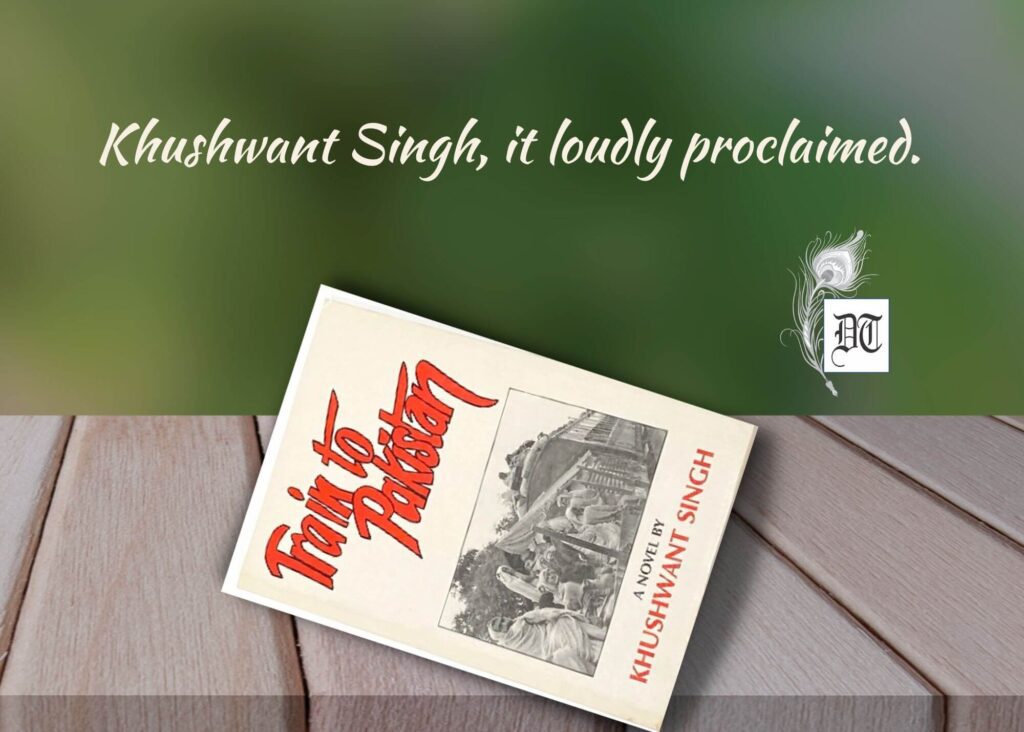
“Shut up, ohay, Sheikha,” I replied with matching outrage. “You know nothing of Sirdars.”
Blokes left their chairs and started crowding around us. Train to Pakistan was passed from hand to hand; everybody wanted to touch it, to hold it, hoping the Sirdar’s English could rub off on them, improve their results and increase their pocket money.
My hand darted out; I picked it up, read the imprint page aloud, then the back cover and before anyone could react, I ran out with it, reached home running, showed it to one-mum, smacked my lips after the delicious kachnar-gosht with parathas, polished off my share of the fruit salad and settled down with the book. One-mum brought me tea and custard cream biscuits at teatime when I was almost at the end of the 192-page volume. My reading speed was around 50 to 60 pages an hour for fiction.
By dinner time, I’d finished, which was when one-mum grabbed it from me, but at about 3 am, I woke up, went into my parents’ bedroom, and was seen by bad dad, a light sleeper with a revolver under his pillow, who indicated the book with his finger. I tiptoed in and out and started reading it again!
Sheikh’s reaction at first sight of the Train in Lucas Centre, FC College, reflected the general Attitude of those times. It was based on Sirdar-jee jokes, the Sikhs’ reputation for reckless bravery and the memories of Partition. The jokes were often made up by Sikhs themselves and, up until 1965, passed as freely across the Indo-Pakistan border as did Indian films and the sari and cardamom smugglers who called themselves blackyas to be classy and who had the border guards on their payroll.
Regarding bravery, the less valiant tend to compensate themselves by dismissing another’s valour as folly: a universal consolation prize.
Twenty years earlier, during the 1947 Partition of India and the creation of Pakistan, Punjabi Muslims and Sikhs, often neighbours and of the same goth/gotra clan, had been slaughtering each other’s men, women, children and the infirm with impunity, while the British artfully dodged the chaos and skipped the sub-continent with alacrity, their self-authored myths of virtuous governance a flourishing industry while their much-vaunted train system degenerated into mobile abattoirs.
Since 1947, each side of Partition prefers to believe itself to have been the only victim or, at the most, had righteously retaliated. The Pathans of Lahore’s upscale Zaman Park, where former Pakistani Prime Minister Imran Khan grew up and still has a residence, were 1947 immigrants from Basti Pathana’an, Jallandhar, who had also been allotted farmland in Mianwali. We knew some of them, and they all had harrowing tales of their womenfolk jumping into wells in 1947 to avoid being raped and killed. Hindus and Sikhs have equivalent blood-soaked stories to recount, and Shauna Singh Baldwin has archived them in her hair-raising What the Body Remembers.
Memories are fed, they prosper on both sides of the border, and they barred the entry of Indian films and literature after the ’65 war: however, boot-legged copies of movies had a ready market, including private viewings, sometimes even in cinemas.
Books, though, fell short.
Khushwant Singh’s Train to Pakistan broke that deadlock and started impacting university life in Lahore. It must have been smuggled since there weren’t any visible copies at the English language bookshops. Still, brand-new, second-hand paperbacks miraculously sprouted in Lahore’s abundant second-hand book shops and stalls, probably printed in the seedy presses of the paisa akhbar neighbourhood.
Once Khushwant Singh entered our lives, a silent, invisible force protected libraries, classrooms, and public debate from contamination. Not even the British Council library displayed Train to Pakistan.
A week or so after Tabi kick-started the Train revolution, I popped over at the Afzals: Dr Afzal was head of the pathology department at King Edward Medical College, five of the six boys were my friends, we all became officers and executives, but before that, our creds were recognised by Lahore’s professional toughs. Captain Akmal, the second son, a 1971 armoured corps war hero, was still at medical college.
“Ohay, Gilla’a!”
“Jee Akmal p’hai!”
“Have you read this?” he waved Train under my nose.
“Ha’an jee. Ballay-ballay!”
He laughed. “Sirdari t’hamaka.”
“He’s done a superb job, Akmal p’hai. Instruction and entertainment both.”
“But he’s put his Sikh spin in it.”
“What Sikh spin?”
“Muslim girl with a Sikh man. Should have been the opposite.”
I saw the anger dancing behind his eyes and held my peace. Akmal p’hai retrieved other parameters that had sidelined Train to Pakistan between 1956 and 1968.
“If the novel you want to write has a Christian spin, ok, make sure it’s not a Christian boy and a Muslim girl. And Train to Pakistan shows that the Sikhs only attacked Muslims in retaliation. That’s nonsense because it was the other way around, if at all.”
He was talking of what later came out as Flight to Pakistan, my first written and second published satirical thriller about Lahore’s Heera Mandi and organised crime, the Boston Cosa Nostra, US special forces and Vietnam, class conflict, inversions …
We were interrupted by the timely arrival of the tea trolley — teapot with loose tea brewing under a quilted tea cosy, custard cream biscuits, dried fruit, boiled eggs, and a couple of leftover laddoo sweets, wheeled in by Ather, his younger brother, gleefully chanting: “My red veil flying in the wind, oh sir, oh sir!”
“Thank you, courageous sir!” I replied, also borrowing from Train to Pakistan.
The room filled with our delighted laughter.
We also admired Khushwant Singh’s skill in weaving Punjabi popular culture, expressions, and invective into his narrative when we were dancing on the common ground between Punjabi and Spanish idioms and invective, delivered by Nobel Laureate Hemingway’s literary clumsiness.
“Yes, and the Sirdar’s ‘mother’s lover’ and ‘sister’s lover’ goes well beyond Hemingway’s survival-level phrases! — hain?”
Immodestly, my forearm shot forward, palm up.
Akmal p’hai and Ather’s palms slapped mine in appreciation and, of course, in order of seniority!
To be continued
Picture design by Anumita Roy

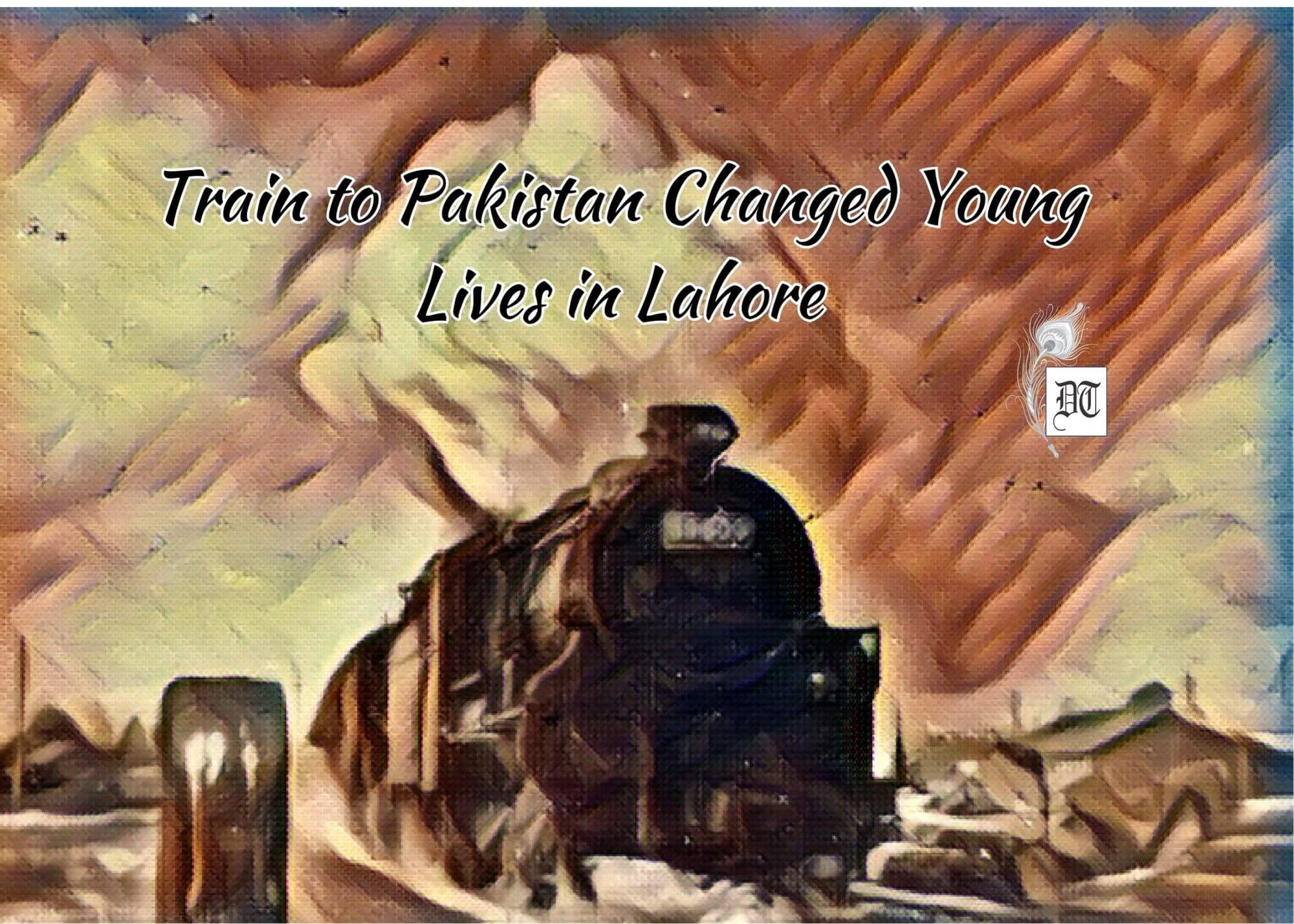


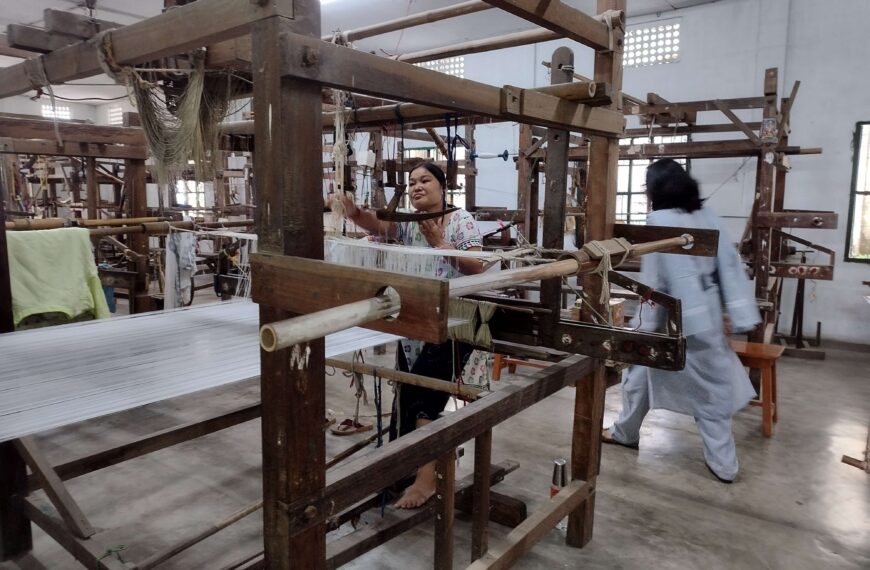
 By
By
 By
By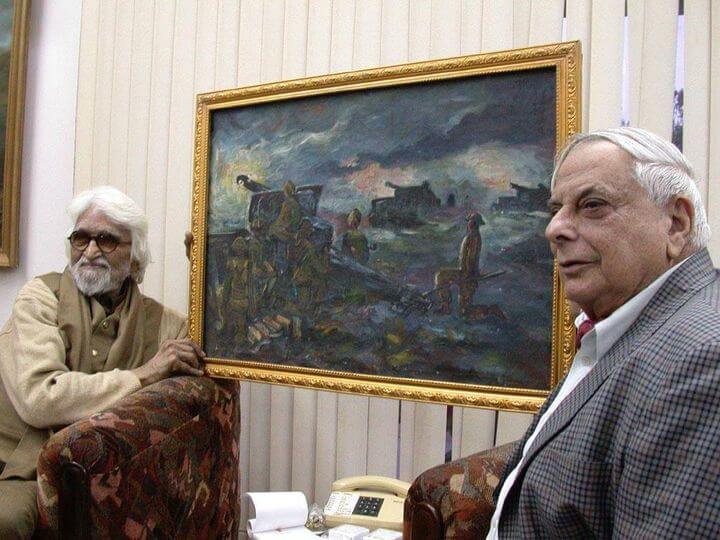
 By
By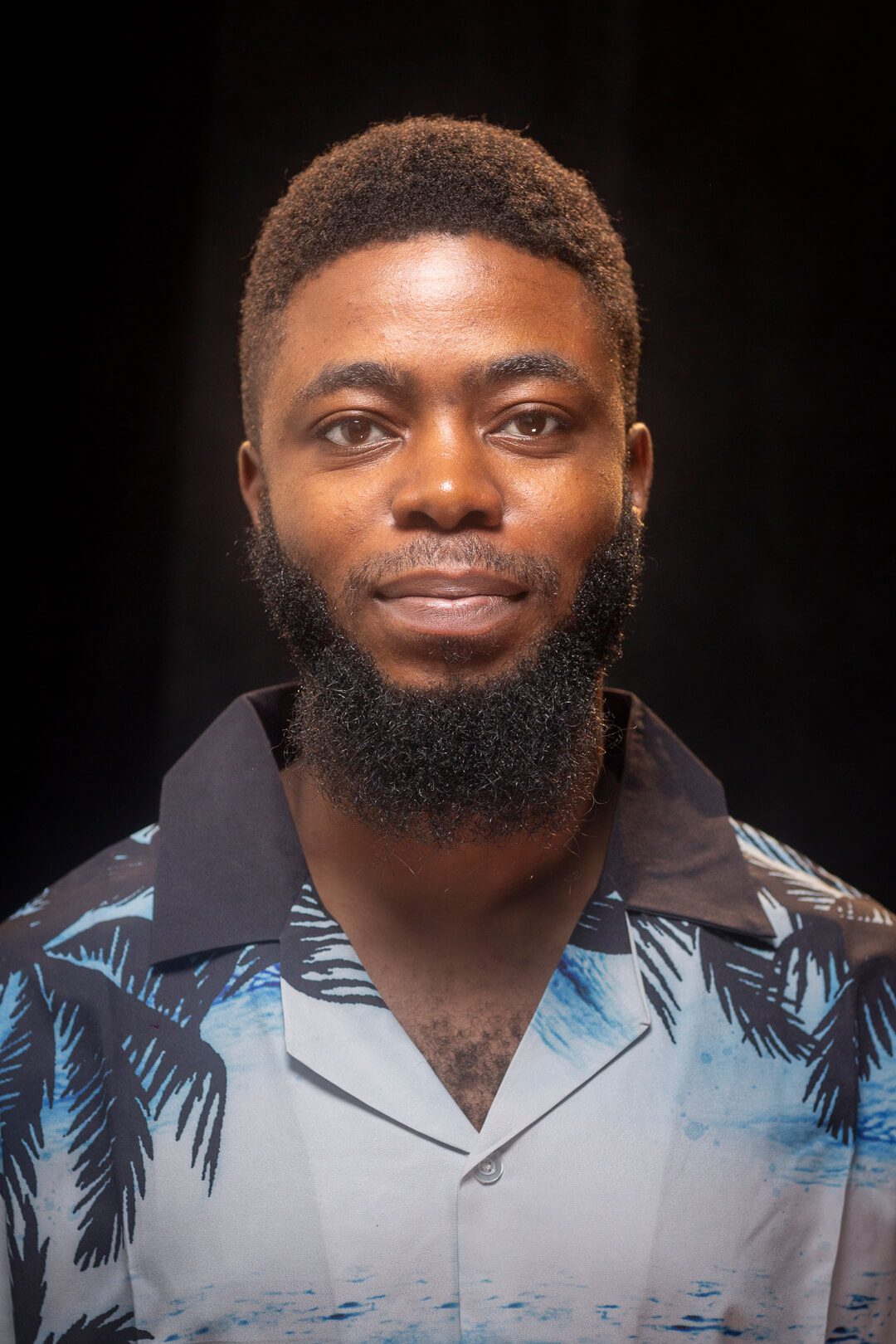
 By
By
What beautiful glimpse into a lifetime; a period of time woven around one book by sardar Kushwant singh, the readers, camaraderie, food, friendships..banter and smattering of punjabi in warm dosti ke baatcheetan…wow-mesmerized. Captivating writing. Feels like I am part of the unfolding of it all
Thank you so much for your gracious comment.
Brilliant
Thank you, sir!